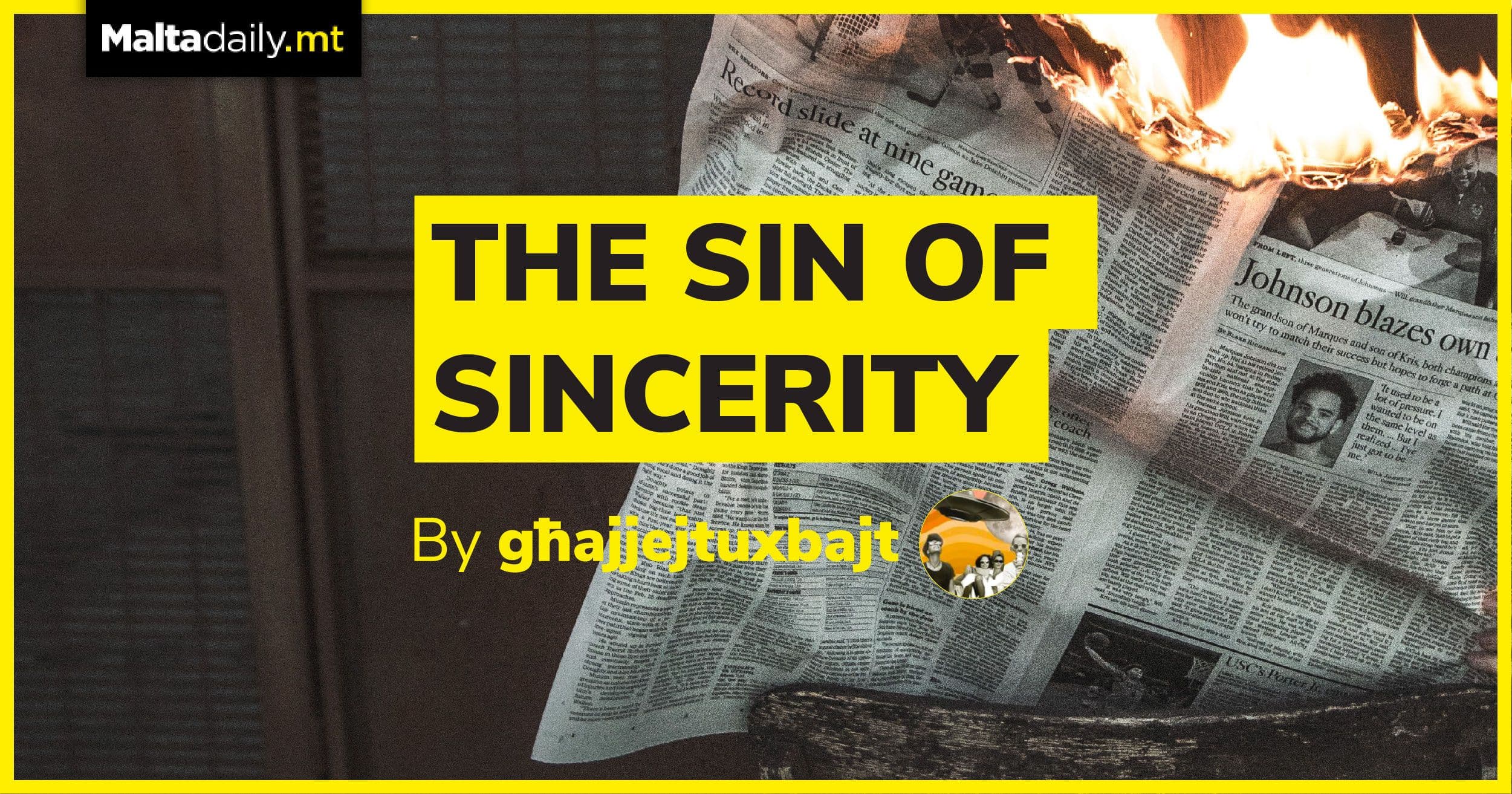The Sin of Sincerity | by Għajjejt u Xbajt

A man proposes to a woman with four, large hand-painted sheets, signs, and several flares that light the land because his feelings are important. ‘This is how much you mean to me:’, this says, ‘a lot.’
Flares ignite at almost 200˚C, and burn hotter, at over 1,500˚C. Even if the particular temperatures for flares are different, they all burn hot. The flares scarred and scorched the land and trees present; land and trees that are protected, with good reason. Igniting fires on this dry scrubland is a fire-hazard.
Starting fires on this land — regardless of legality — is a bad idea. This is a reasonable stance; damaging the land irreversibly and risking a forest fire is not good. This claim is not the purpose of the article, and it would be boring because it’s already been said by political activist Cami Appelgren.
What I am writing about: the comments on a social media post amplifying this sound judgement from a citizen. To the people commenting on this post, Cami Appelgren’s only motivation for this reasonable statement was that she was, quote & (sic): “just butthurt.”. Name calling: “Karen” was thrown around a lot. It was clear that the only reason they could believe was that Appelgren wishes she was being proposed to, and must be bitter.
Seeing the comments, and who posted them, I could find common ground: male and happily so, young, and from (some degree) of privilege.
But our feelings were different. It’s the same as when, at school, my classmates would say the only reasons that the teacher — if they were a woman — was upset with them were always tied to their sex. It protected them, assured them that their behaviour was fine, and it’s the other who is wrong. Looking back, it’s amazing to me for how long we can walk around with a fragile ego, lashing out and dismissing anyone that not only criticises us, but even something we like.
This is where it gets interesting. We like romantic gestures, big ones, the bigger the better. ‘Proof’, we say, ‘that we have a heart and are good.’ Just as using big words would be proof that I am smart. If someone doesn’t like what I like, then surely the problem is with them, and they need to change. Any woman that tries to tell me that how I feel or what I like — even in a public space, even when it is their job — is a Karen, someone that treats service workers as slaves and public spaces as public services, that demands that people, laws, and policies bend to their will. Which is decidedly the opposite of Appelgren, an advocate for the written law and, more importantly, the protection of green and public space for all. Criticising a man for permanently harming the protected scrubland for a fleeting and selfish gesture is somehow criticising all men.
There is no way to address this to the men who wrote those comments without being condescending, so I will address those who know them so they might intervene. To these young men, any expression sincere expression of care expressed by a woman is the same as a critical or hostile space to them. To Appelgren, the sin was damaging the environment. To the people commenting, Appelgren’s sin was caring at all. This isn’t reasonable, it is emotional: any criticism to them or things they like is a personal attack, a thing they are losing and scared to lose.
To see the world as a child the world is fine and free. To see the world as an adolescent the world is full of rules you didn’t write and choices you didn’t get to make. It is fine and brave to reject those that want to control us so that we might be free. It is wrong and cowardly to think correction from people who care is bitterness, or anger, or sex, or hormones, or any fault which we believe can never be our own.
Really.
#MaltaDaily


